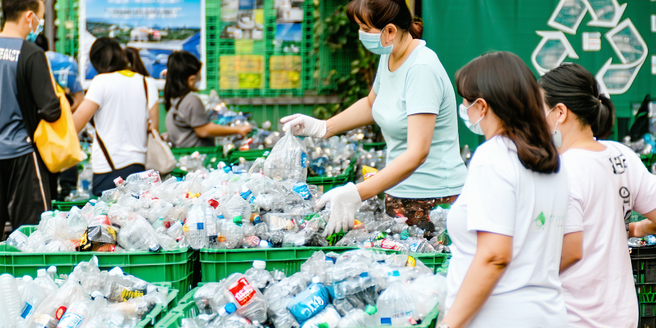
Benefits of Local Recycling Initiatives
Local recycling initiatives offer numerous benefits, including reducing waste, conserving natural resources, and promoting sustainability. By actively participating in community recycling programs, residents can help decrease landfill usage and lower greenhouse gas emissions, contributing to a healthier environment. Recycling also supports the local economy by creating jobs in the recycling and manufacturing industries. Furthermore, recycling programs can lead to collaborations between local governments and private companies to improve waste management systems. Educational campaigns raise awareness about proper recycling practices, engaging citizens across all age groups. Communities see a sense of pride and shared responsibility, fostering unity as residents work toward a common goal of environmental preservation. Additionally, increased recycling efforts increase public access to recycled materials, enabling innovation in sustainable product development.
Navigating State-Specific Recycling Regulations
Recycling regulations vary significantly across different states in America, necessitating a thorough understanding of local laws. Eastern states, with their diverse ecosystems and population densities, often have specific regulations to address unique environmental challenges. Residents must familiarize themselves with the accepted recyclable materials in their area and any collection procedures. Many states provide resources or websites detailing these regulations, making it easier for individuals to comply. Some communities also organize events to promote better recycling habits among residents. Where curbside collection isn’t available, drop-off centers may be utilized. Understanding these regulations can prevent contamination of recycling bins and ensure efficient processing. Outreach programs and educational workshops play a pivotal role in informing residents about their responsibilities.
Case Studies: Successful Programs in the East
Exploring successful recycling programs in the Eastern United States offers valuable insights into effective waste management strategies. For example, Worcester, Massachusetts, set a precedent with its ‘Zero Waste’ initiative, focusing on comprehensive waste diversion practices. Similarly, New York City has made significant strides with its extensive curbside recycling program, which includes both residential and commercial sectors. These programs emphasize community involvement, consistent public education, and collaboration with local businesses. Notably, continuous feedback from residents has helped improve these programs over time. It is crucial to recognize the role of government policies in facilitating these initiatives. Additionally, partnerships with nonprofit organizations have enhanced outreach efforts. By analyzing these case studies, other regions can adopt adaptable elements tailored to their specific community needs, promoting sustainability.
Challenges Facing Eastern Recycling Efforts
Recycling efforts in Eastern America face a range of challenges, from fluctuating market demands for recyclables to logistical obstacles in collection and processing. Urban areas often struggle with contamination in recycling streams due to improper sorting by residents. Additionally, older infrastructure in some cities may hinder efficient recycling operations. Local governments are exploring innovative solutions to enhance recycling efficiency. A rising awareness of environmental sustainability underscores the urgency to tackle these issues head-on. Rural areas face challenges due to limited access to facilities and higher transportation costs. Addressing these challenges requires coordinated efforts involving government, private sectors, and communities. Policy adjustments, investment in modern technology, and public education campaigns are critical in overcoming obstacles and achieving recycling goals.
How to Get Involved in Your Community
Getting involved with your local recycling program can be an enriching experience that benefits both the environment and your community. Start by educating yourself about your area’s recycling guidelines and sharing this knowledge with neighbors. Encourage others to take small steps towards sustainability. Volunteer for community clean-up events or organize drives to collect recyclable materials. Consider applying for grants that fund recycling projects and innovations. Advocacy is also vital; you can support initiatives that aim to improve recycling infrastructure and policies. Attending local government meetings provides opportunities to voice support for recycling improvements. Joining or forming a community task force can further this cause, creating active dialogue surrounding environmental goals. Engaged participation fosters community resilience and sustainability.
